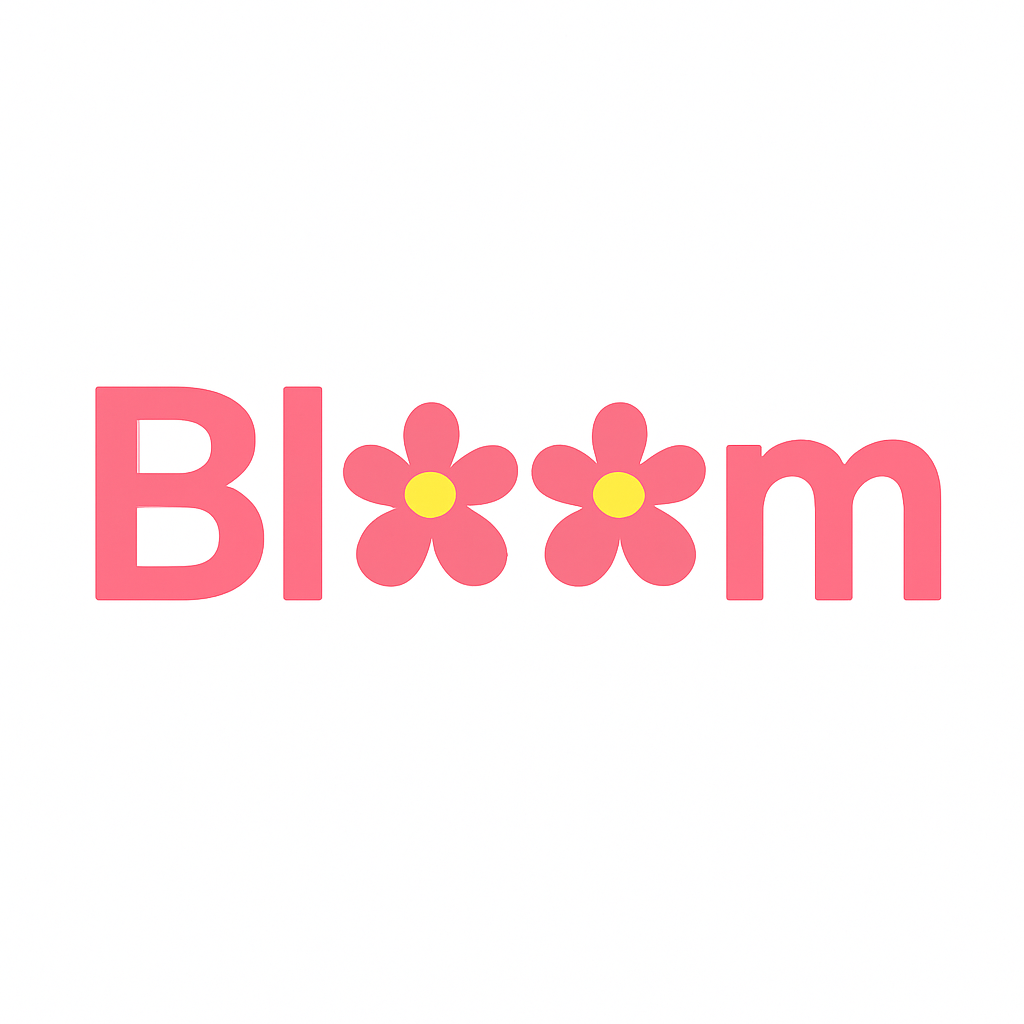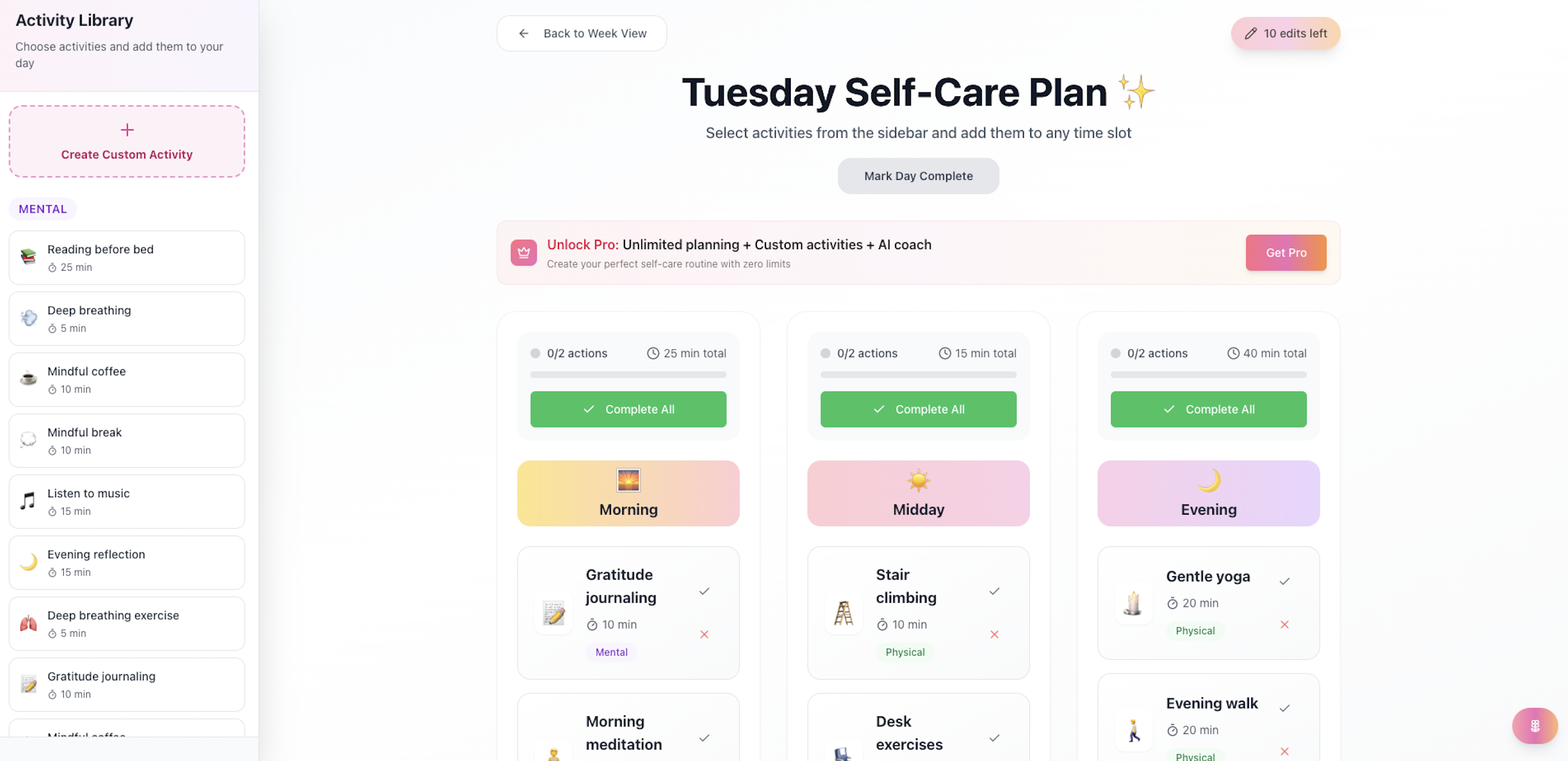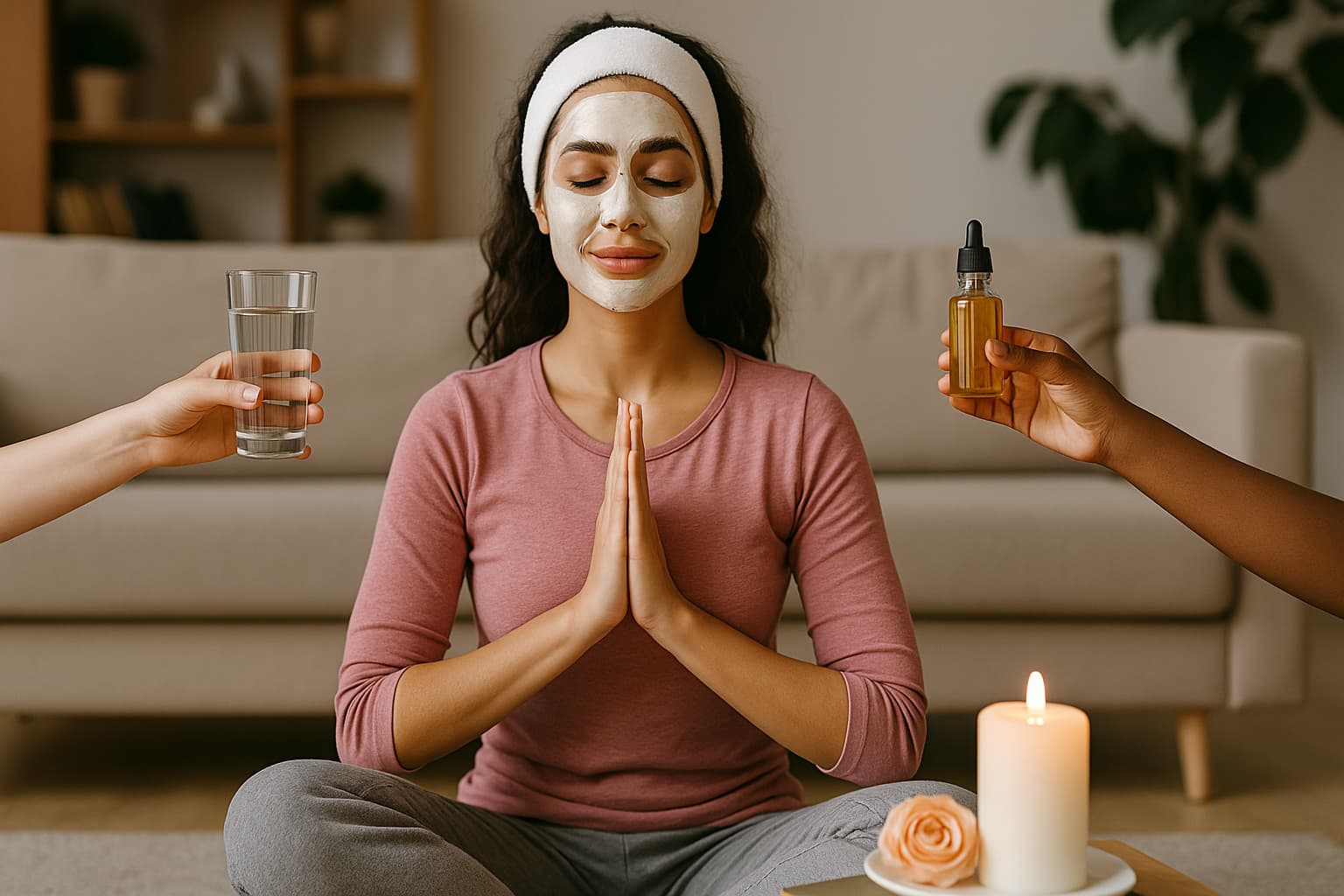
Top 9 Best Self Care Apps in 2025 (Expert Review) 🏆
🌟 Find Your Perfect Self Care App
Not sure which app is right for you? Take our interactive quiz below to get a personalized recommendation!
🎯 Find Your Perfect Self-Care App
1. What's your biggest self-care challenge?
🌟 Your Perfect Match: Bloom!
Based on your answers, Bloom Self-Care Planner is the ideal app for you. Here's why:
✨ In a nutshell: Which self care apps are actually worth using in 2025?
Here are our top 9 recommendations as of January 2025:
| Rank | App Name | Best For | Free Version | Web/App | Our Rating |
|---|---|---|---|---|---|
| #1 | Bloom | Full-spectrum self care planning | Yes | Web App | ⭐⭐⭐⭐⭐ (5.0) |
| #2 | Balance | Guided meditations & breathing | Limited | App | ⭐⭐⭐⭐⭐ (4.8) |
| #3 | Finch | Mental health + journaling fun | Yes | App | ⭐⭐⭐⭐⭐ (4.7) |
| #4 | Stoic | Emotional clarity through journaling | Limited | App | ⭐⭐⭐⭐⭐ (4.6) |
| #5 | Fabulous | Building habits through gamification | Yes | App | ⭐⭐⭐⭐⭐ (4.6) |
| #6 | MindDoc | Mental health mood screening | Yes | App | ⭐⭐⭐⭐⭐ (4.5) |
| #7 | Daylio | Minimalist mood & habit tracking | Yes | App | ⭐⭐⭐⭐⭐ (4.5) |
| #8 | Rootd | Anxiety & panic attack help | Limited | App | ⭐⭐⭐⭐⭐ (4.4) |
| #9 | Calm | Meditation & sleep stories | Yes | App | ⭐⭐⭐⭐⭐ (4.4) |
#1 🥇 Bloom
Best For: Full-spectrum self care planning
Free Version: Yes | Platform: Web App
⭐⭐⭐⭐⭐ (5.0)
#2 🥈 Balance
Best For: Guided meditations & breathing
Free Version: Limited | Platform: App
⭐⭐⭐⭐⭐ (4.8)
#3 🥉 Finch
Best For: Mental health + journaling fun
Free Version: Yes | Platform: App
⭐⭐⭐⭐⭐ (4.7)
#4 Stoic
Best For: Emotional clarity through journaling
Free Version: Limited | Platform: App
⭐⭐⭐⭐⭐ (4.6)
#5 Fabulous
Best For: Building habits through gamification
Free Version: Yes | Platform: App
⭐⭐⭐⭐⭐ (4.6)
#6 MindDoc
Best For: Mental health mood screening
Free Version: Yes | Platform: App
⭐⭐⭐⭐⭐ (4.5)
#7 Daylio
Best For: Minimalist mood & habit tracking
Free Version: Yes | Platform: App
⭐⭐⭐⭐⭐ (4.5)
#8 Rootd
Best For: Anxiety & panic attack help
Free Version: Limited | Platform: App
⭐⭐⭐⭐⭐ (4.4)
#9 Calm
Best For: Meditation & sleep stories
Free Version: Yes | Platform: App
⭐⭐⭐⭐⭐ (4.4)
🌟 1. Bloom — Best full-spectrum self care planner
Highlights:
- ✅ Free access on web browser (computer and mobile)
- ✅ Clean, soothing interface perfect for reducing stress
- ✅ Personalized planning that adapts to your life rhythm
- ✅ Progress tracking without guilt
- ✅ No ads, complete respect for your privacy
Why it’s our #1: Bloom combines simplicity and effectiveness. Unlike other aggressive productivity apps, Bloom encourages gently. Computer access is a huge plus for integrating self care into your work routine.
🛌 2. Balance — Best for guided meditations
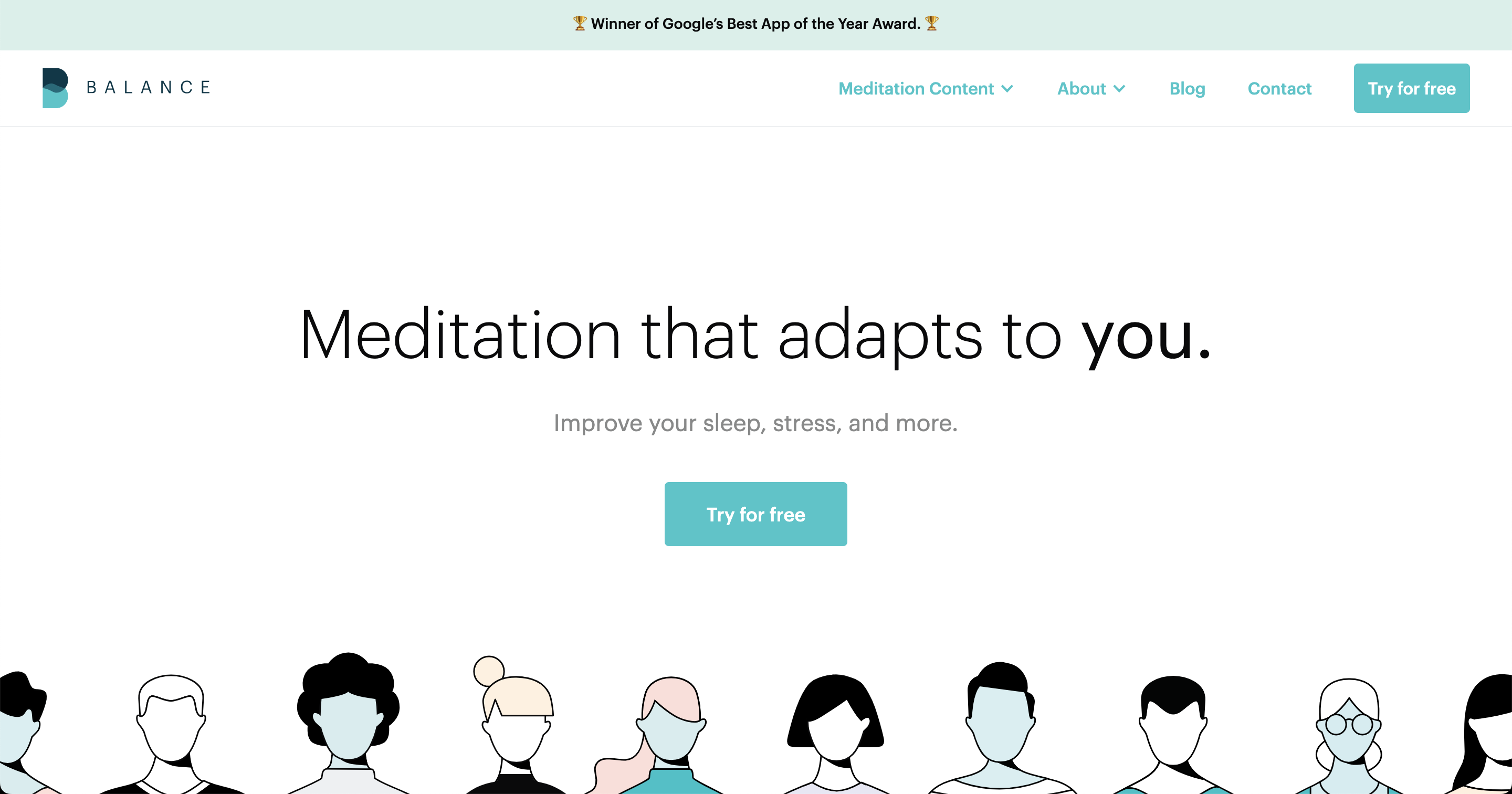
Highlights:
- Daily meditation paths adapted to your goals, energy and experience
- Progress tracking to see your meditation skills grow
- Access to a vast meditation library: focus, stress, sleep, and more
Why it matters: Balance personalizes your journey over time and keeps it simple, even for beginners. The minimalist design helps you stay consistent.
🎨 3. Finch — Best gamified mental health app
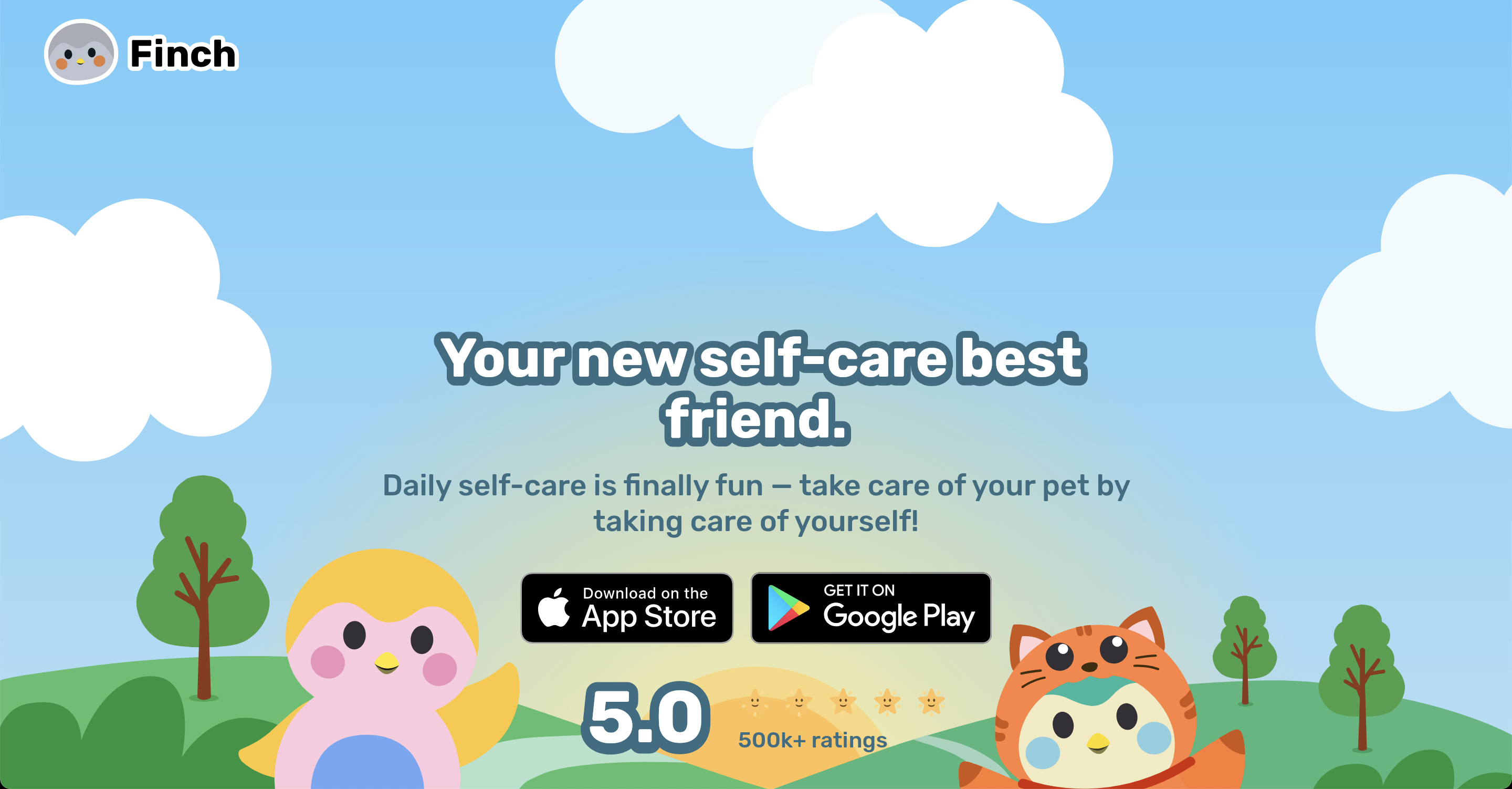
Highlights:
- Meet and grow your own self-care pet by completing real goals
- Mindful challenges, emotion check-ins, expressive journaling
- Fun without losing depth: the content feels genuinely therapeutic
What users say: They love how encouraging the tone is — no ads, lots of personalization, and actual emotional support built-in.
📅 4. Stoic — Best for structured journaling
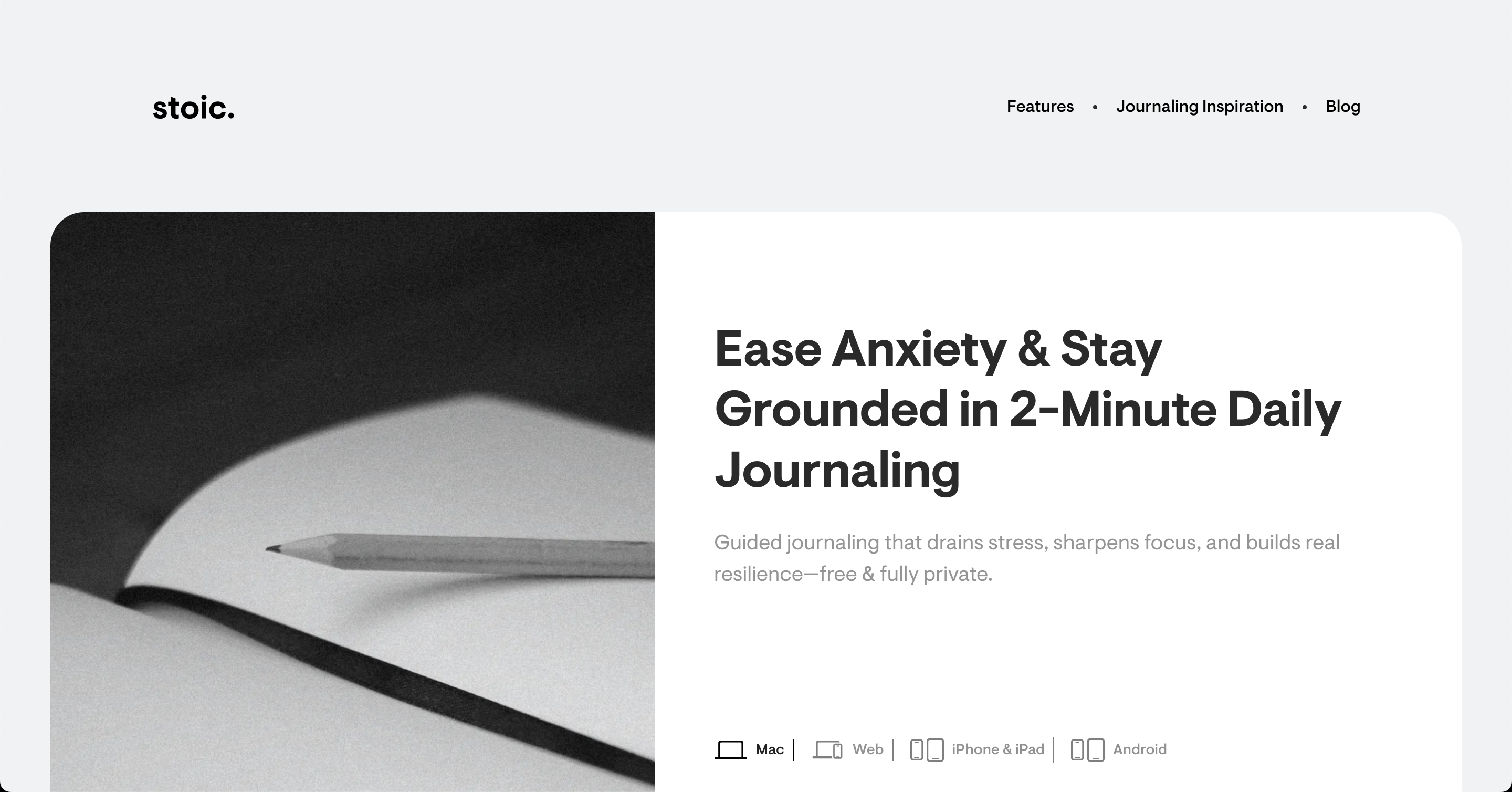
Highlights:
- Daily guided prompts inspired by Stoicism and psychology
- Full privacy: encrypted, secure, and personal
- Reflective tools: thought timelines, emotional clarity, quotes
Ideal for: Users seeking calm introspection, consistency and minimal distraction. Stoic helps you anchor your thoughts and track your emotional evolution.
🏋️ 5. Fabulous — Best for building routines with energy
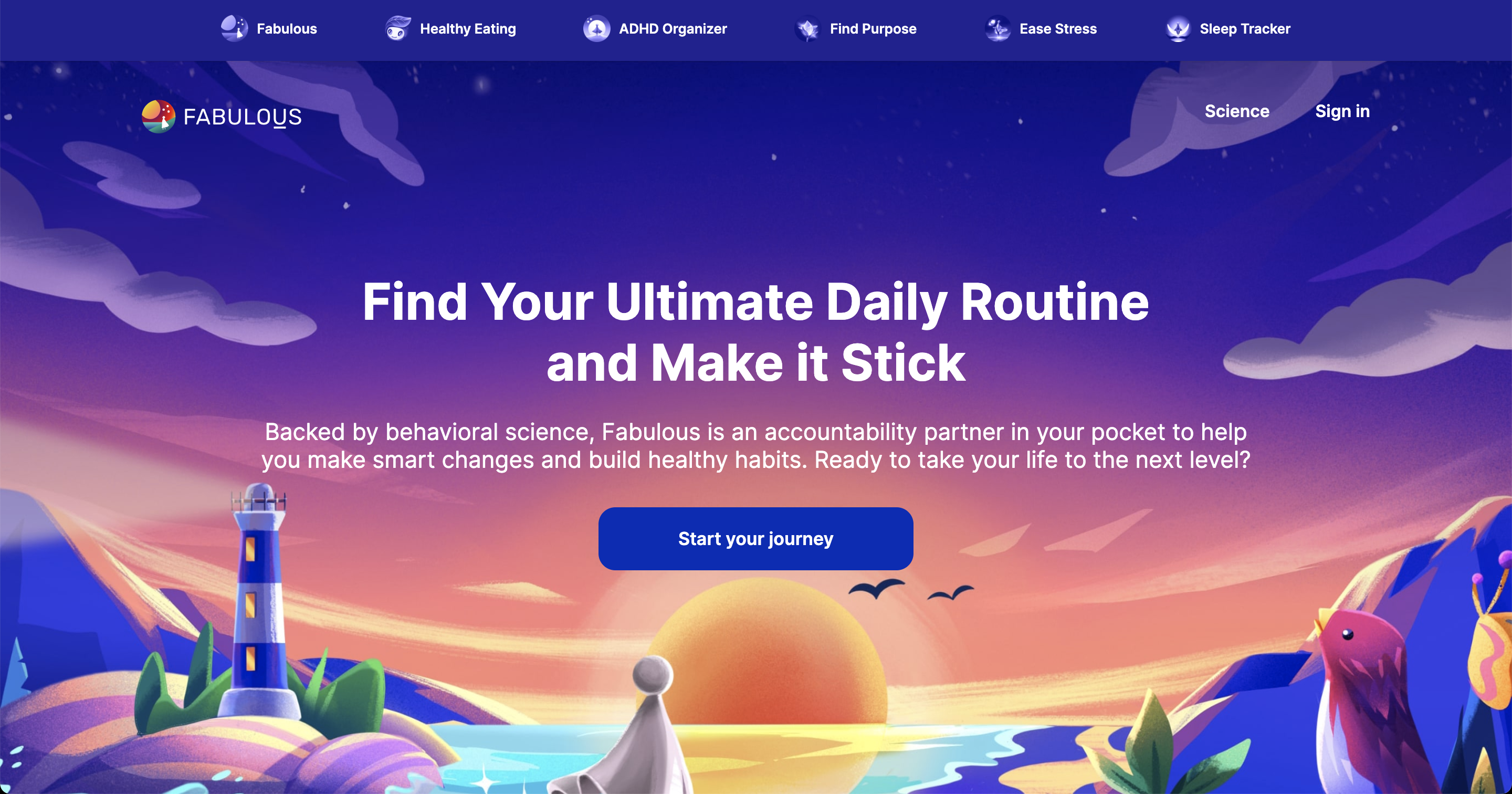
Highlights:
- Science-backed habit loops designed for long-term change
- Engaging visuals and motivational coaching
- Full journeys to build morning routines, focus, sleep, nutrition
Great for: ADHD brains and visual learners who thrive on stimulation. Its universe is vibrant, supportive, and habit-focused.
🧠 6. MindDoc — Best for mental health self-tracking
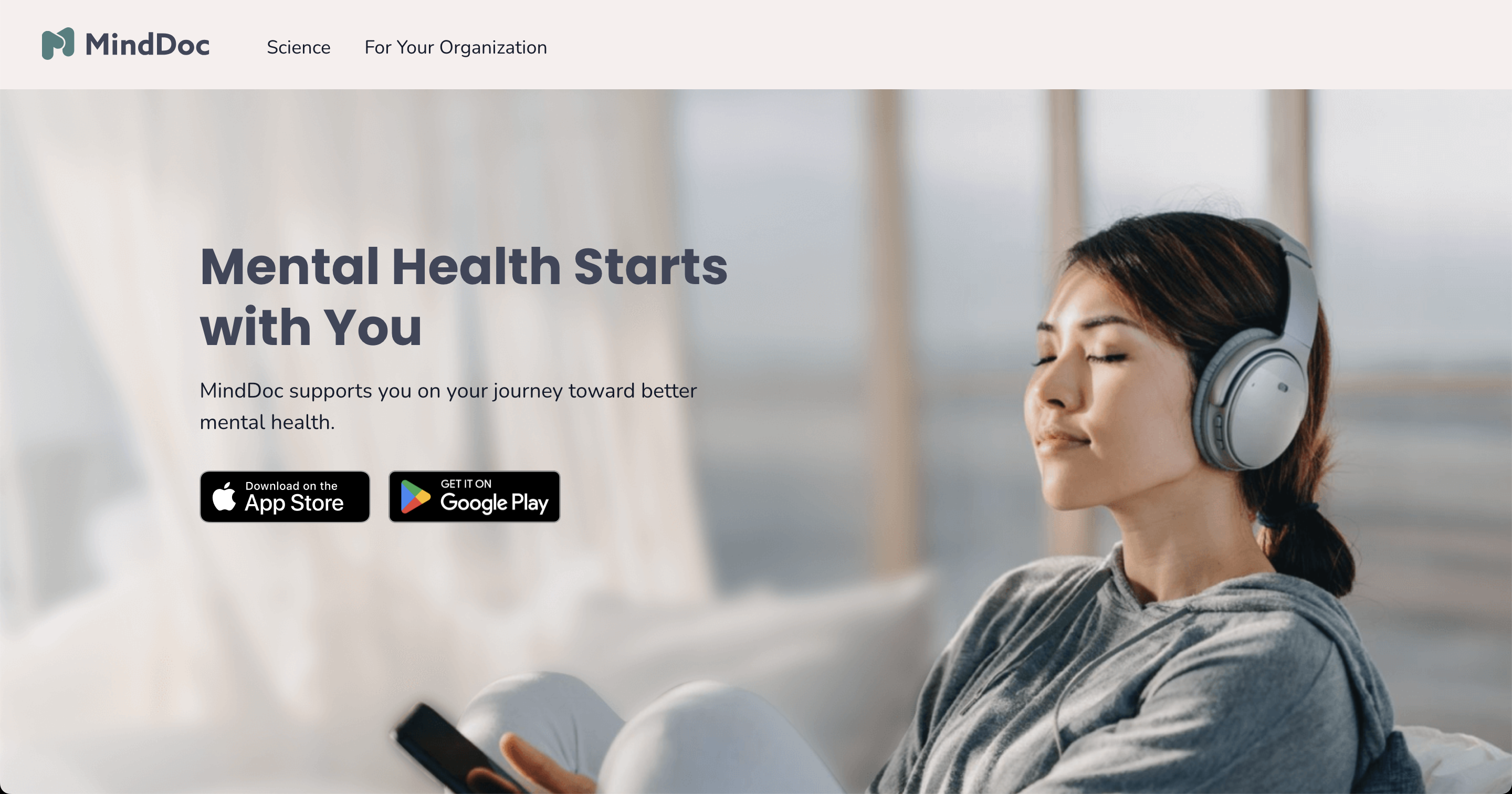
Highlights:
- Co-developed by clinical psychologists
- Monitors mood, thoughts and symptoms over time
- Insights dashboard with personalized feedback
Why it’s useful: A discreet tool to spot early warning signs, especially if you’re not ready to consult a therapist. Also includes CBT-based exercises.
📊 7. Daylio — Best for mood tracking without writing
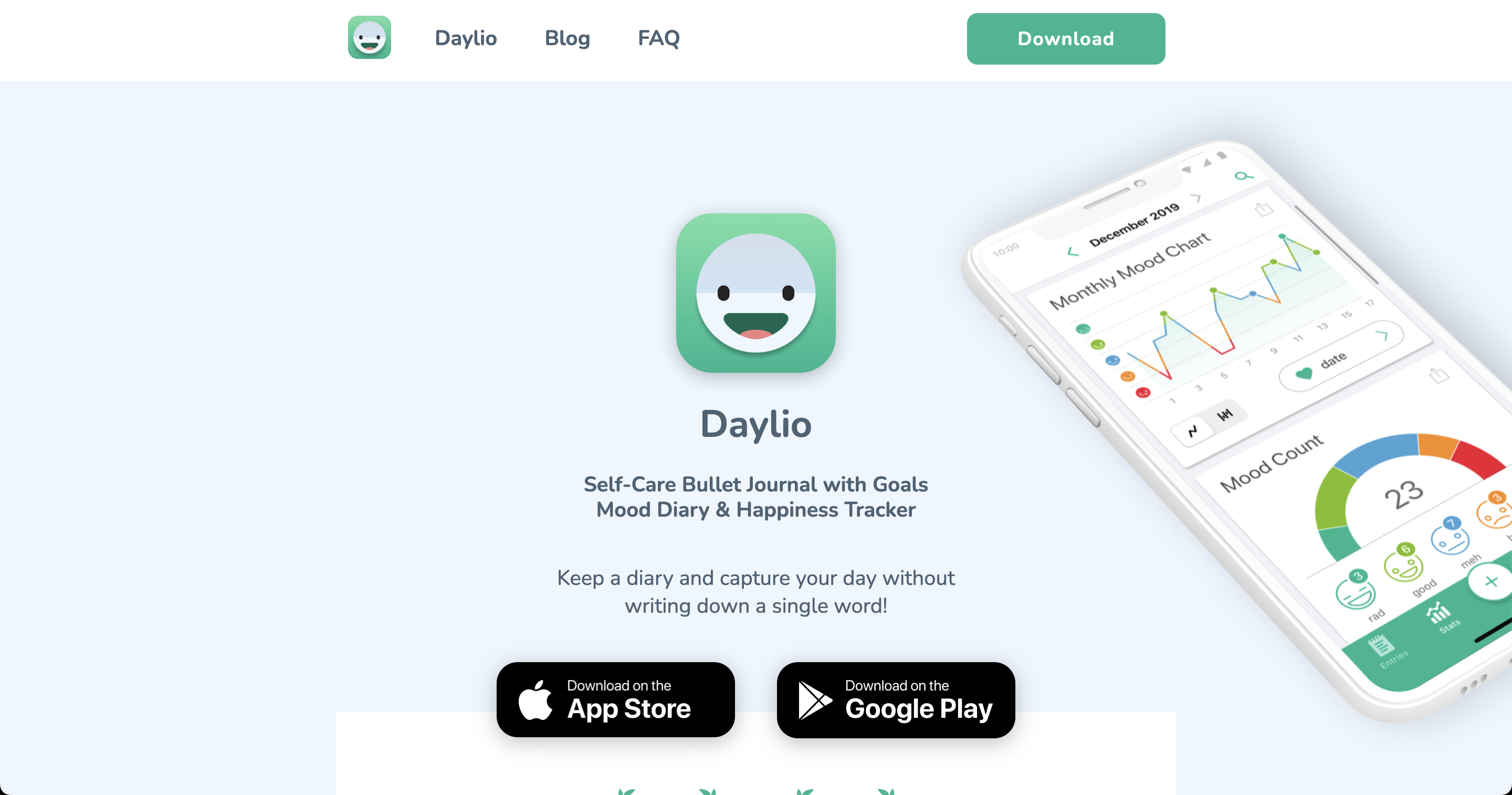
Highlights:
- Mood and activity tracker with full visual stats
- Color-coded themes, passcode-protected, and exportable
- Custom goals, reminders, and powerful data filters
Why it works: Its simplicity is its power. For people who just want to track how they feel and what they do, without friction.
⚡ 8. Rootd — Best app for anxiety & panic attacks
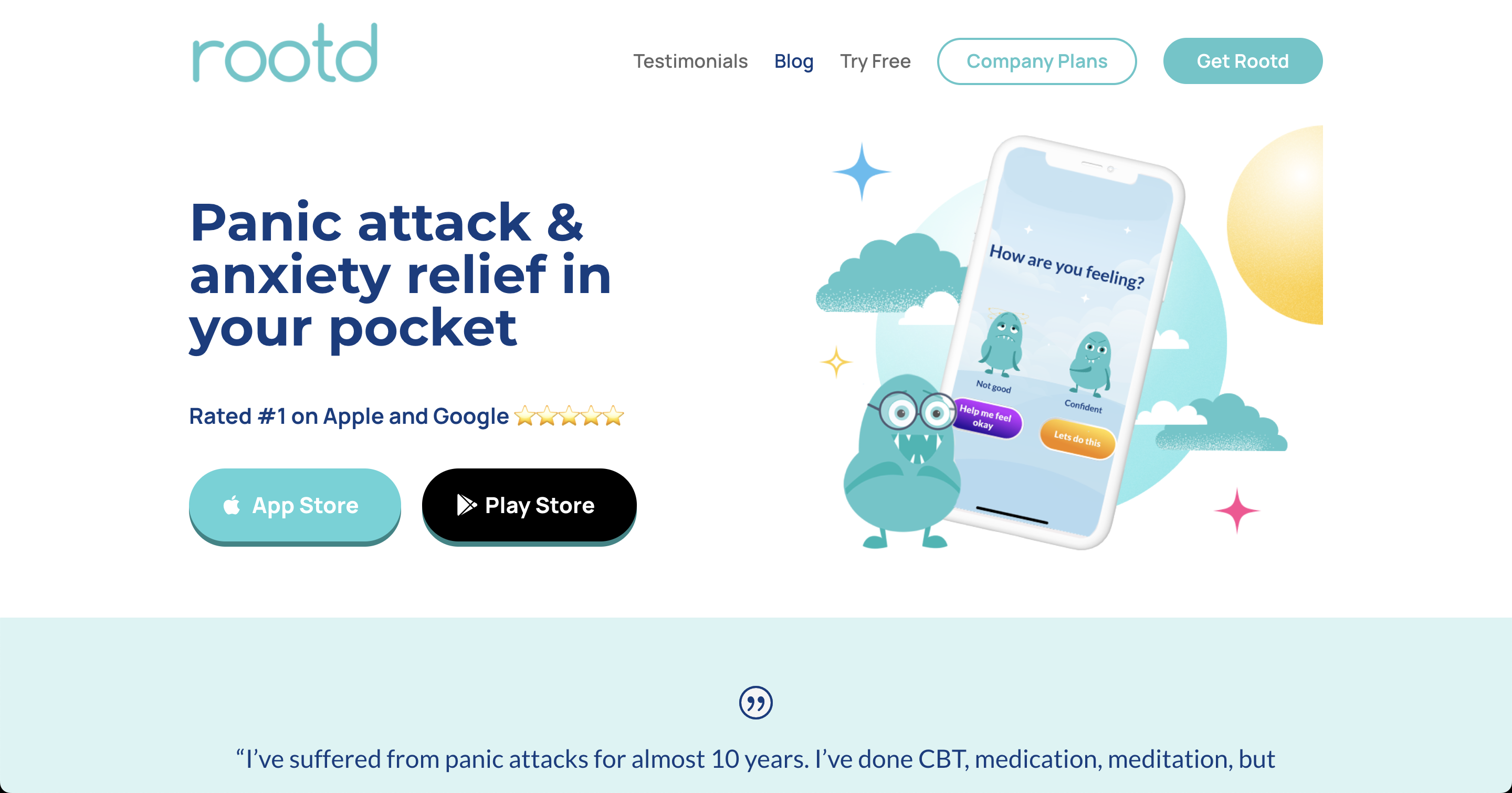
Highlights:
- Red button feature for immediate support during panic attacks
- Clear explanations on how anxiety works in your body and mind
- Short-term and long-term learning paths to build resilience
Unique aspect: It feels human. The mascot, tone, and structure make it safe to use even when you’re not okay. Rootd is loved by both users and therapists.
🔮 9. Calm — Premium meditation & sleep stories
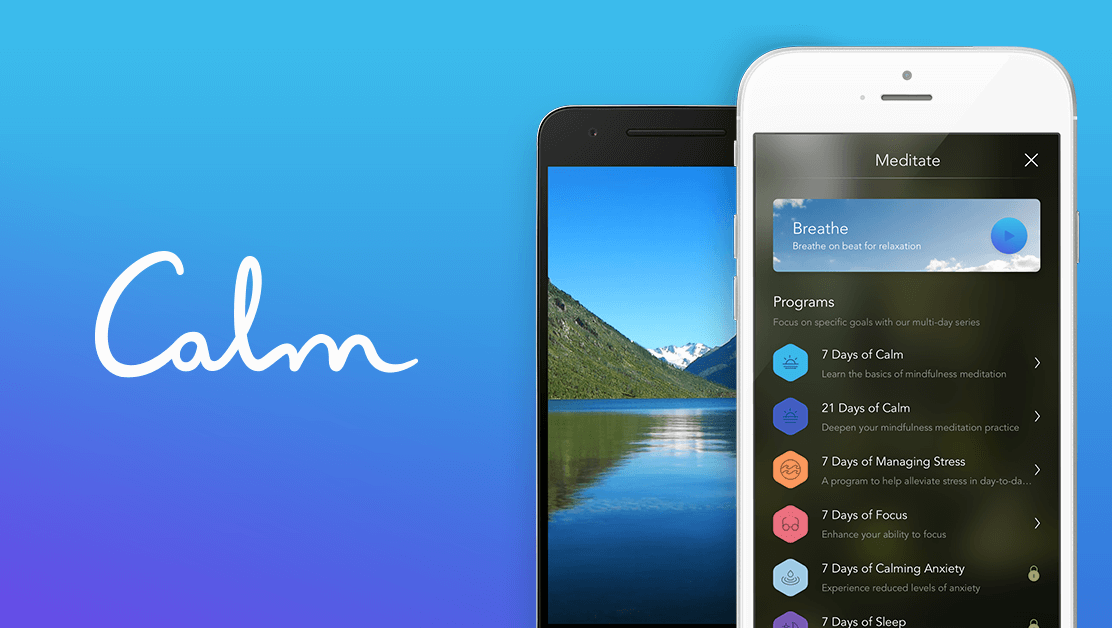
Highlights:
- Daily meditation sessions with renowned teachers
- Sleep stories, soundscapes, and nature sounds for better rest
- Masterclasses on mindfulness, gratitude, and self-improvement
Ideal for: Anyone seeking guided meditation and better sleep. Calm provides a comprehensive library of content for mental wellness and relaxation.
🧾 Trusted scientific sources on self care apps
To back our top picks with real-world data, here are two peer-reviewed scientific publications evaluating the effectiveness of mobile self care apps:
1. 🧠 Mobile-based self-care apps can reduce anxiety, stress and depression
A 2025 systematic review published in BMC Medical Informatics and Decision Making analyzed 10 clinical trials. It found that mobile self care apps can significantly reduce anxiety, especially in high-stress populations like healthcare workers.
2. 📱 Do mental health apps actually work?
A 2023 meta-analysis reviewed dozens of randomized controlled trials. The results show that mental health apps can have moderate positive effects on symptoms of depression (g = 0.28) and anxiety (g = 0.30), particularly those based on CBT and mindfulness.
→ See the scientific breakdown
🎯 Conclusion
The choice of the best self care app depends on your personal needs, lifestyle and preferences. Bloom remains our #1 recommendation for its simplicity, web accessibility and gentle approach to self care.
Our advice: Start by trying Bloom for free, then explore other apps if you have specific needs (meditation with Balance, gaming with Finch, or anxiety management with Rootd).
Which app best fits your needs? Feel free to share your experience in the comments!
